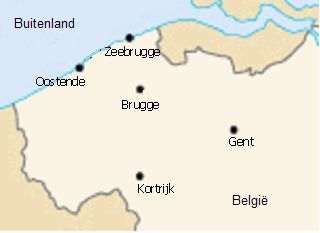
Pages
University of Pretoria, departement of biochemistry, Malaria Parasite Molecular Biology
Abstract Bachelor Project FBT 2018-2019: In vitro screening of extracts of plants against sexual and asexual stages of Plasmodium falciparum
Malaria is one of the major global health challenges causing over 219 million clinical cases in 2017. This disease is caused by protozoa of the genus Plasmodium with P. falciparum parasite accounting for 90 % of the clinical malaria cases globally. Emergence of drug resistant Plasmodium parasite strains demands for introduction of novel drugs with new modes of action (MoA).
While encouragingly the drug development field in malaria has seen trials on new drugs with novel MoA, in the past decade no new chemotherapeutic agents have been approved for clinical use. Historically plants have served as a source from which antimalarial drugs such as quinine and artemisinin have been isolated. Both these compounds have served as scaffolds from which derivatives such as chloroquine and dihydroartemisinin have been produced. Against this background, the aim of this study was to identify South African plant extracts with in vitro activity against both the intra-erythrocytic sexual (for transmission-blocking efforts, TCP-5) and asexual (for therapeutic efforts, TCP-1) Plasmodium parasite stages. Different extracts of plants were screened in vitro against intra-erythrocytic sexual (late stage gametocytes, stage IV and V) and asexual P. falciparum parasites.
Extract of plants were screened in vitro against intra-erythrocytic asexual and late stage gametocyte of P. falciparum parasites using the SYBR Green I assay (to measure asexual stage parasites proliferation) and parasite lactate dehydrogenase (pLDH) assay (for measuring gametocyte viability). The half-maximal inhibitory concentration (IC50) was extrapolated from full- dose response curves of each extract investigated.
Detailed results cannot be described here due to a signed confidentiality agreement with the University of Pretoria, however the results from the study showed extracts to have good activity (IC50 value of less than 10 µg/ml) against both asexual and gametocyte stages of P. falciparum.
Abstract Bachelor project FBT 2017-2018: Nested PCR amplification of Plasmodium falciparum antimalarial drug resistance markers in DNA extracted from RDT isolates from the Limpopo province of South Africa
The use of antimalarial drugs for the prevention and treatment of malaria is a major strategy used in the control of the disease. Although over the past 50 years, the emergence of antimalarial drug resistance in Plasmodium falciparum has significantly hindered global control efforts at great cost to human health and life.
In malaria elimination settings such as South Africa, the knowledge of the prevalence of resistance markers which are associated with drug resistance is essential for helping to implement effective drug policy. This study examines the prevalence of the resistance marker Plasmodium falciparum multi-drug resistance 1 (Pfmdr1), related to quinolone resistance, in Limpopo province of South Africa.
Nested polymerase chain reaction (PCR) was done on 332 DNA samples extracted from Plasmodium falciparum positive Rapid Diagnostic Tests supplied by different public health facilities located in Limpopo province in order to confirm identity of the parasite species. The Plasmodium falciparum confirmed DNA samples were then investigated for the presence of the N86Y mutation at codon 86 of the Pfmdr1 gene by nested PCR followed by restriction fragment length polymorphism.
Detailed results cannot be described here due to a signed confidentiality agreement with the University of Pretoria, however the results suggest a decrease in the prevalence of the Pfmdr1 N86Y mutation in Limpopo province. Future, larger studies are required to confirm this.
Address
|
South Africa |
Contacts
|
Traineeship supervisor
Lyn-Marie Birkholtz
lbirkholtz@up.ac.za |

